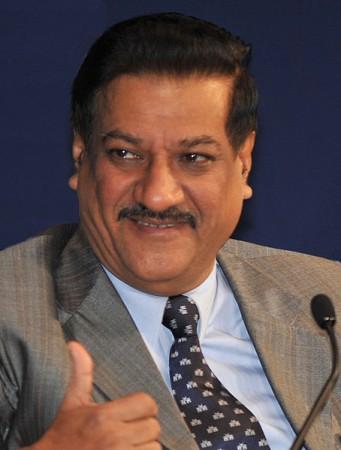
Two days after the Maharashtra government approved 16 percent reservation for the Maratha community in the state, which accounts for about 35 percent of the population, a public interest litigation (PIL) was filed in the Bombay High Court on Friday challenging the reservation. The PIL also calls the government's decision a "fraud".
Chief Minister Prithviraj Chavan, who cleared the proposal for the reservation on Wednesday, had said that the Maratha community was looked at as educationally and socially backward and hence should be given the quota in educational institutions and jobs.
The PIL, filed by former journalist Ketan Tirodkar, has challenged the fact that the community is being termed as backward, adding that the decision is a "fraud committed upon the country and its Constitution".
Along with the Marathas, the state had also announced a 5 percent quota for Muslims in the state on Wednesday, which brought up the total reservation quota in the state to 73 percent, much above the 50 percent ceiling mandated by the Supreme Court.
The PIL claims that most chief ministers of the state have belonged to the Maratha community, while the community members also run educational institutions and control about 85 percent of sugar factories and cooperative banks. It also says that Maratha is not a caste bust a linguistic group.
According to the PIL, "Ninety-nine percent of the former chief ministers of the state hail from the same community... 85 per cent of the sugar factories in the state are owned/controlled by Marathas, 75 per cent and more land is owned by the Maratha community in the state, more than 72 per cent of co-operative institutions are controlled by Marathas." The PIL also claims that between 1962 and 2005, 55 per cent of the MLAs (1200 out of 2000 MLAs) have been from the community.
A division bench of Justice A S Oka and Justice A S Chandurkar is likely to take up the PIL for hearing on 30 June, as per news reports.
The move of the Congress-NCP state government to give reservation to Marathas has come under fire for its political overtones, as the state goes in for assembly polls in a few months. Chavan had however denied that the decision was politically motivated, claiming that proposals for both quotas were in consideration for a long time. He said that the quota for Muslims was also not based on religious grounds but because of their social and economic backwardness.


!['Kaise ho bhai..': PM Modi shook hands with Akshay Kumar at a media summit in Delhi [Watch] 'Kaise ho bhai..': PM Modi shook hands with Akshay Kumar at a media summit in Delhi [Watch]](https://data1.ibtimes.co.in/en/full/806317/kaise-ho-bhai-pm-modi-shook-hands-akshay-kumar-media-summit-delhi-watch.jpg?w=220&h=135&l=50&t=40)


!['Kaise ho bhai..': PM Modi shook hands with Akshay Kumar at a media summit in Delhi [Watch]](https://data1.ibtimes.co.in/en/full/806317/kaise-ho-bhai-pm-modi-shook-hands-akshay-kumar-media-summit-delhi-watch.jpg?w=220&h=138)
!['Kaise ho bhai..': PM Modi shook hands with Akshay Kumar at a media summit in Delhi [Watch]](https://data1.ibtimes.co.in/en/full/806317/kaise-ho-bhai-pm-modi-shook-hands-akshay-kumar-media-summit-delhi-watch.jpg?w=220&h=135)


